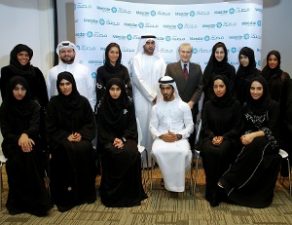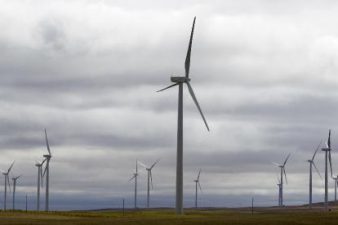 The first Arab country to create one, Morocco’s new charter provides a blueprint for environmental protection and sustainable energy production.
The first Arab country to create one, Morocco’s new charter provides a blueprint for environmental protection and sustainable energy production.
In a first for the Arab world, the Moroccan government announced a National Charter for Environment and Sustainable Development, becoming the first African country to launch any such ambitions. It is part of the country’s push to lead the Arab and African nations in their effort to become more energy independent via alternative energy sources, including wind, solar and biogas.
King Mohamed VI announced the charter during the country’s celebrations of Earth Day last April 22 – it was the first such celebrations on the African continent – and hopes that the country will continue to move forward on its promises to garner nearly half of its energy from alternative sources by 2020.
Earth’s constitution
The charter will form the framework for all future national environmental laws and will help guide government officials on natural resources, the environment and sustainability.
According to Mohamed Kourok, a professor of climatology at Hassan II Ain Chok University in Casablanca, “laws are a large problem in terms of changing environmental attitudes.”
The charter, he says, in essence, will act as a defacto constitution for environmental policy. It lays down specific goals for every future project scheduled or imaginable in the country, “and while we are certain the charter will be revised over and over again, it will give us talking points for all projects to be developed.”
He told Bikya Masr in April that “the charter should be respected by every citizen and hopefully it can be told and explained in a clear manner that will help galvanize this country to see its full potential.”
Flexible and understandable
Kourok did say that a final version of the charter is being finalized – to be released by mid-May – after a number of attempts to finish it left environmentalists confused over the language being used. He said that officials have moved past “archaic” language to make it “flexible and understandable to all parties that will be involved in environmental projects in the country.”
Environment ministry spokesman Abdulrahman Diab said the charter would give companies, governments and all people wanting to invest or help sustain our energy needs “the guidance and understanding required in all our ambitious projects.”
Diab believes that as the first such charter in the Arab world, “it will be a blueprint for other countries to quickly follow in order to shore up investment and funding opportunities to create the environmental projects that are needed today to help fight against climate change.”
With the charter, agrees Diab and Korouk, now the challenge will be to use it as a point of interest to companies wanting to invest in the wide rage of environmental projects already slated for the future. These projects include efforts to repair the desertification caused by over foresting, placing artificial reefs to protect marine ecosystems, using methane gas from landfills as an energy source, promoting the end of plastic bag use and fostering an overall sense of eco-friendly Morocco in schools.
“The charter also specifies our insistence on creating our solar program, which is already off the ground and hopefully we will see results. Overall, the charter does not create new projects, it specifically will set the parameters that all new development efforts must adhere to,” Diab said.
Morocco gets serious
For environmental activists and prospective investors in the country, the fact that there is a charter now on the table highlights Morocco’s seriousness in tackling climate change issues.
Steve Thomlinson, a freelance American economist who consults with companies looking to invest in North Africa, told Bikya Masr in Cairo last summer that “before the announcement of the charter, many companies were still under the impression they could get around the red tape of Morocco’s ‘nice talk’ but now they understand the importance the country is placing on environmental sustainability. Let us not forget the reality that such a document can have on almost everything.”
:: Bikya Masr
More business and politics news in the Middle East:
Tinkering With Nature: World’s Largest Lagoon Planned For The Red Sea
Saudi Aramco’s 80-Year Reserves vs. German “Peak Oil”
Dubai Gas Stations Running Out of Gas
image via Celso Flores


